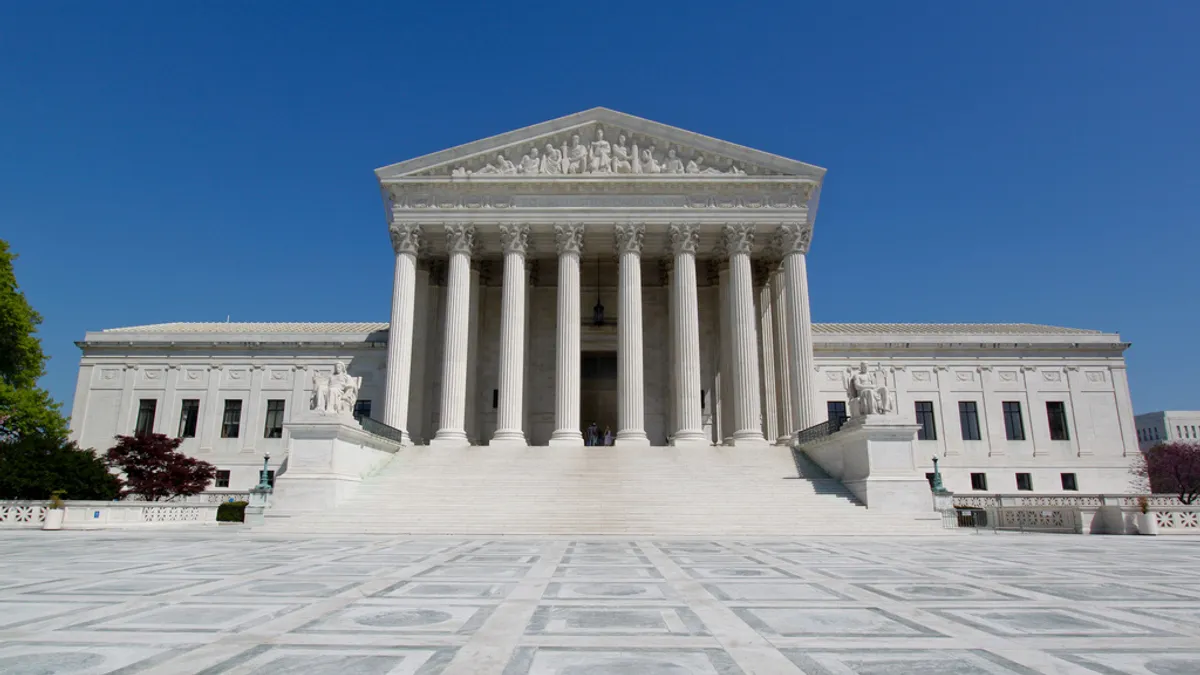Dive Brief:
- The Electric Power Supply Association and several other groups and utilities have filed a brief with the U.S. Supreme Court, urging the justices to reject what they view as FERC's attempts to overstep its authority and regulate demand response at the retail level.
- The final brief filing deadline is Sept. 8, and oral arguments in the case are slated for Oct. 14.
-
The D.C. Circuit Court vacated Order 745 last year, but the Supreme Court decided to hear an appeal from the Obama administration as to FERC's ability to regulate demand response.
Dive Insight:
We're just a month and a half away from oral arguments in the biggest demand response court case ever — the U.S. Supreme Court is taking final briefs from parties involved in the case and oral arguments have been scheduled for the middle of October.
In its most recent brief, EPSA — along with the American Public Power Association, National Rural Electric Cooperative Association, Edison Electric Institute, a group of PJM Inteconnection power providers and several energy companies — argues that the decision before the Supreme Court is an easy one.
"Order No. 745 is a naked effort by FERC to regulate retail demand and prices that plainly
exceeds its jurisdiction," the groups wrote.
The court will review two questions: if FERC has jurisdiction under the Federal Power Act and whether the full locational marginal pricing compensation formula is arbitrary and capricious.
"FERC has no more jurisdiction to regulate retail-level 'demand response' through payments to retail customers than it does to raise retail prices directly," EPSA wrote. "The regulation of payments to retail customers to consume less electricity at retail is fundamentally the regulation of retail sales and rates."
The D.C. Circuit last year found that FERC's attempt to regulate demand response in wholesale energy markets encroached on the the right of states to regulate retail energy markets. The decision threw the demand response industry and the markets it serves into uncertainty and lowered projections for DR growth by almost half.
Proponents of FERC regulation say demand response is necessary to keep markets operating efficienctly. DR provider EnerNOC has told the court that "without demand response participation, wholesale energy markets will not ‘function…effectively’: Competition will be constrained; and prices will be higher."















